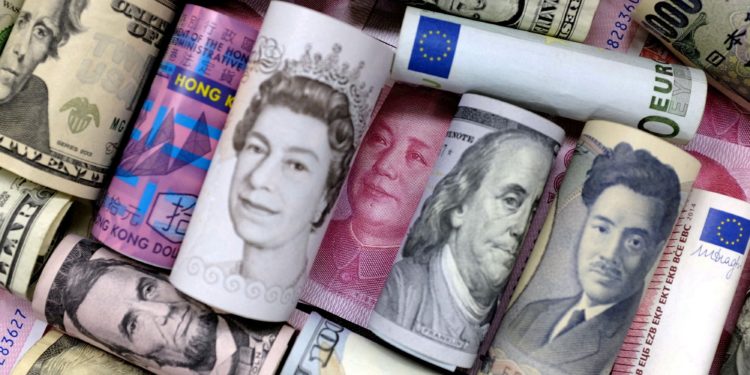
Four illegal FX market operators caught; two convicted
The Central Bank has published on its website all registered financial institutions and urges the public to patronize and undertake business with only institutions licensed by the Bank.
- Advertisement -
The Asokwa Circuit Court 2 in Kumasi has sentenced Senyah Poku and Yaa Serwaa of Senyah Poku Enterprise, an unlicensed foreign exchange bureau operating in Patase, Kumasi, to a fine of six hundred penalty units equivalent to GH¢7,200.00 each.
The convicted persons pleaded guilty to charges of “Conspiracy to Engage in the Business of Dealing in Foreign Exchange Without License” and “Engaging in the Business of Dealing in Foreign Exchange Without License.”
- Advertisement -
Background
- Advertisement -
The Ashanti Regional Police Command, Kumasi, in collaboration with the Other Financial Institutions Supervision Department (OFISD) and the Security Department of the Bank of Ghana, investigated and arrested four persons dealing in foreign exchange without approval and a license from the Bank.
The undercover investigation began on October 29, 2023, and concluded on December 3, 2023.
The other suspects awaiting trial are Adam Isak and Alhassan Nuhu of Macowasi Forex Bureau, another unlicensed foreign exchange bureau also operating on the KNUST Campus, Kumasi.
The OFISD in conducting supervisory duties in Kumasi, detected certain anomalies in the Foreign Exchange (FX) market and their effective work and preliminary intelligence gathering, led them to several illegal/parallel foreign exchange market operators in the Kumasi area.
Foreign Exchange Laws
- Advertisement -
Ghana’s foreign exchange market is regulated by the Foreign Exchange Act 2006, Act 723. The Act cloaks the Bank of Ghana with all licensing, supervisory and regulatory authority.
According to Section 3(1) of the Foreign Exchange Act, 2006, Act 723, “A person shall not engage in the business of dealing in foreign exchange without a license issued under this Act.”
Section 29(1)(a) of the Act further states that “A person who engages in the business of dealing in foreign exchange without a license commits an offense and is liable on summary conviction to a fine of not more than seven hundred penalty units or a term of imprisonment of not more than eighteen months or both.’’
According to the Bank of Ghana, dealing in foreign exchange without approval or a license is a punishable offense under the Foreign Exchange Act 2006, Act 723.
The Bank has consistently issued a strong caution to the general public to desist from engaging the services of foreign exchange businesses operating without a license.
The Central Bank has published on its website all registered financial institutions and urges the public to patronize and undertake business with only institutions licensed by the Bank.
- Advertisement -

